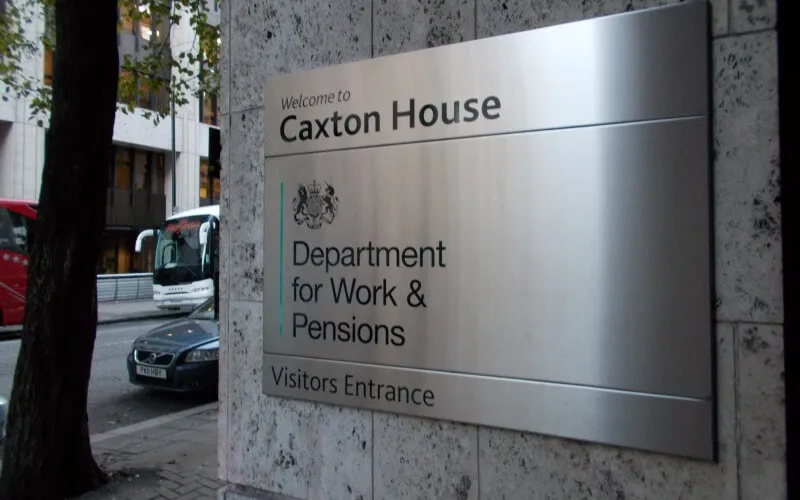The government’s own benefits advisers have told ministers that it is “increasingly untenable” for them to refuse to pay those on out-of-work disability benefits the temporary increase of £20 a week being paid to claimants of universal credit.
The increase in the standard allowance of universal credit (UC) – and in working tax credit – was announced on 20 March by the chancellor, as a result of the pandemic crisis, and will last 12 months.
But ministers have insisted they cannot make the same increase quickly or safely to those on employment and support allowance and jobseeker’s allowance.
Now members of the social security advisory committee (SSAC), in a letter to work and pensions secretary Therese Coffey, say they are “of the strong view that it is increasingly untenable for this group of claimants to be excluded and to continue to have a lower level of income” than those receiving UC and working tax credit.
The committee’s interim chair, Liz Sayce, also calls in the letter for changes to housing benefit, the benefit cap, and how the government is communicating changes to social security during the crisis.
But the committee does also praise the “extraordinary” work the government has done to make major changes to the benefits system to “provide immediate financial support to millions of out-of-work, employed and self-employed people who have been impacted by the coronavirus pandemic”.
A DWP spokesperson refused to respond to the committee’s requests, but said in a statement: “We are doing whatever it takes to ensure people are supported through these unprecedented times, including injecting £6.5 billion into the welfare system and rolling out income protection schemes, mortgage holidays and additional support for renters.
“We have experienced a surge in demand since mid-March and universal credit has enabled us to increase payments at pace, while maintaining the stability of the welfare system overall.
“We estimate that 2.5 million households on universal credit will benefit immediately from the £20-a-week increase in the standard allowance.
“We have also increased other entitlements such as local housing allowance, to better support those across all benefits.”
Disabled people in Northern Ireland are being asked to take part in a survey as part of moves to persuade their devolved government to re-open the Independent Living Fund (ILF) for new claimants for the first time in 10 years.
The organisation that runs ILF in Northern Ireland, ILF Scotland, was set to hold four events across the country in March to ask for views on allowing new claimants to apply for support from the fund, which helps more than 430 disabled people with high support needs to live independently in the community.
The events had to be cancelled because of the coronavirus crisis, so it is now carrying out an online survey instead, which it hopes will lead to a formal government consultation later this year.
ILF Scotland wants disabled people, including existing ILF recipients, family, friends, personal assistants, disabled people’s organisations and other interested parties in Northern Ireland to complete the survey before 17 June.
Susan Douglas Scott, chair of ILF Scotland, said they wanted to hear people’s ideas for the future of the Independent Living Fund and particularly about the possibility of reopening the fund in Northern Ireland to new claimants.
The website Benefits and Work has published the second part of its survey of disabled people who have had their personal independence payment assessment carried out over the telephone as a result of the coronavirus pandemic.
Concerns raised by those who responded to the survey included not being able to hear the assessor clearly.
Only a small proportion (eight per cent) of the more than 250 people who took part in the survey described the assessor as unfriendly, although some of them used words such as “hostile”, “intimidating”, “insensitive” and “rude” to describe them, while 47 per cent said their assessor was encouraging.
About one in seven said their assessor did not appear to have read in advance the form they had filled in to describe how their impairment affected them.
Other concerns included the failure to make reasonable adjustments for claimants, including those who are deaf or have anxiety.
*For sources of information and support during the coronavirus crisis, visit the DNS advice and information page
A note from the editor:
Please consider making a voluntary financial contribution to support the work of DNS and allow it to continue producing independent, carefully-researched news stories that focus on the lives and rights of disabled people and their user-led organisations.
Please do not contribute if you cannot afford to do so, and please note that DNS is not a charity. It is run and owned by disabled journalist John Pring and has been from its launch in April 2009.
Thank you for anything you can do to support the work of DNS…

 ‘Disastrous’ cuts bill that leaves legacy of distrust and distress ‘must be dropped’
‘Disastrous’ cuts bill that leaves legacy of distrust and distress ‘must be dropped’ Four disabled Labour MPs stand up to government over cuts to disability benefits
Four disabled Labour MPs stand up to government over cuts to disability benefits Silence from MP sister of Rachel Reeves over suicide linked to PIP flaws, just as government was seeking cuts
Silence from MP sister of Rachel Reeves over suicide linked to PIP flaws, just as government was seeking cuts